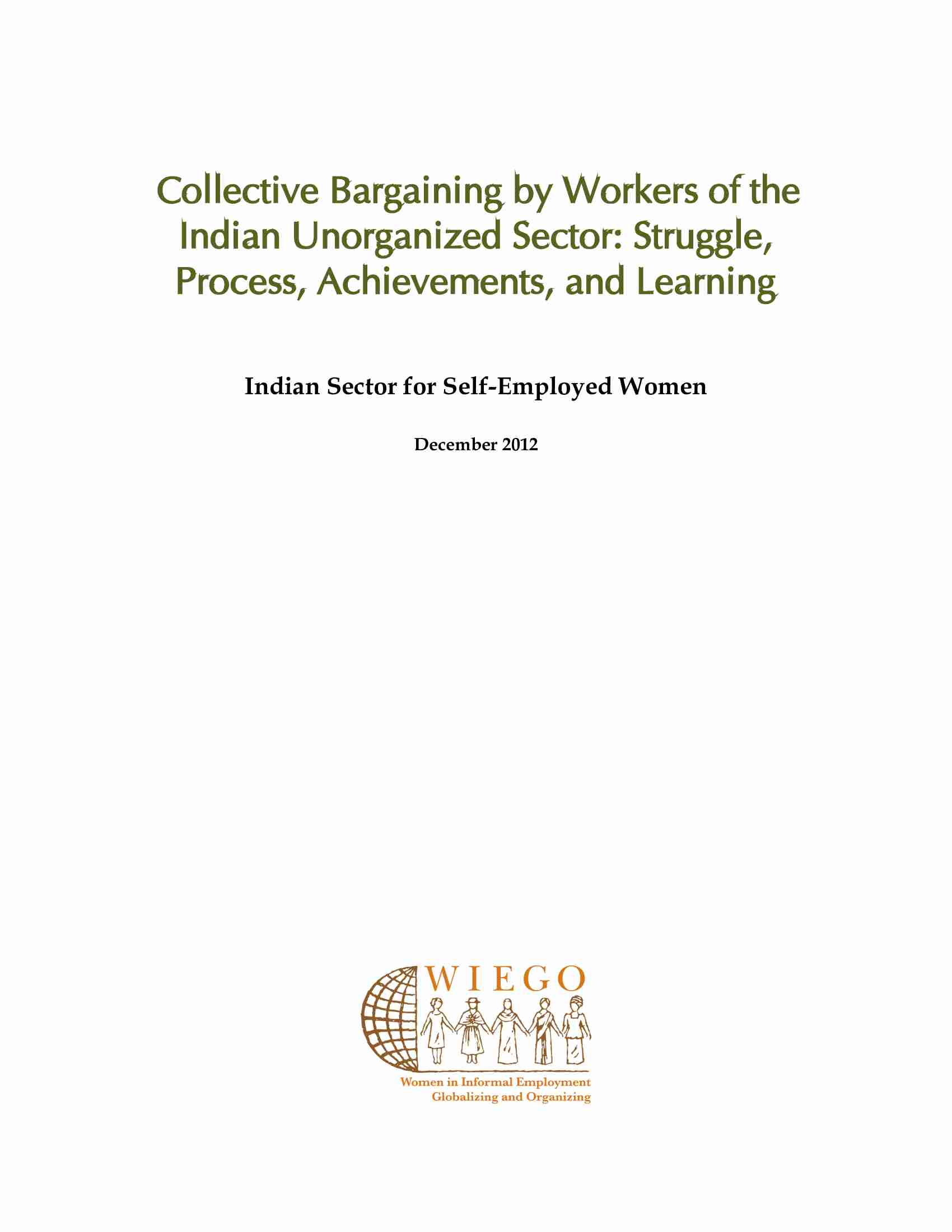Collective Bargaining by Workers of the Indian Unorganized Sector: Struggle, Process, Achievements, and Learning
The main focus of the paper is on highlighting the Self Employed Womens Association (SEWA) strategy for using collective bargaining for decent work, just compensation, and worker welfare. Experiences in organizing bidi worker women from the states of Gujarat, Madhya Pradesh (MP), Rajasthan, and West Bengal are used to explain the SEWA intervention strategy, the process of collective bargaining, and achievements.
This case study is one in a set of five case studies examining collective bargaining by informal workers.
View list of all: Stories/Case Studies

